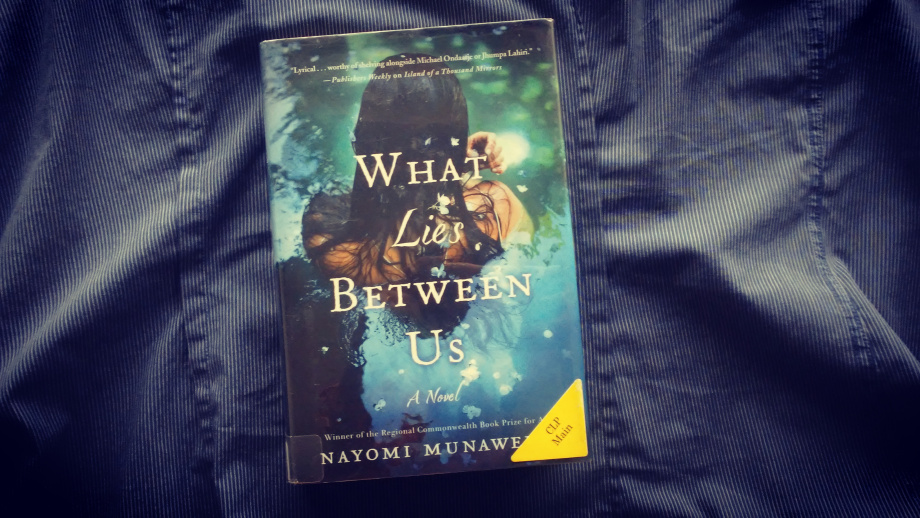Stay With Me by Ayobami Adebayo

Yejide and Akin have a happy marriage for the most part; they fell in love while at university, they continue to remain in love. But there is a child-sized hole in their lives, and to fill it up with a living, breathing child, Yejide will do everything. New medicine and old, ancient knowledge and feminine wisdom, nothing is dismissed. She even breast-feeds a goat atop a Mountain of Jaw Dropping Miracles. But there are things she doesn’t know, which she will be told later, and which will drive her to leave everything behind.
The story is written from the points of view of husband and wife, and in these alternating viewpoints, much is revealed to us. We see the confidence and pride men seem to possess simply for being men; it gives them the impunity to do almost anything. Akin decides for others, he deceives and lies. Yejide too is willing to look away from painfully obvious truths in her life, in her desperation to become a mother.
This is a stunning novel that speaks of many themes we can all relate to: the status of a childless woman, the struggle between tradition and modernity, the peculiar and particular expectations placed on women in a patriarchy, losing all sense of individuality in a society that emphasizes collective thought. The lives of the protagonists unravel in the midst of political turbulence in Nigeria, but the chaos outside their homes does not concern them as much as the war being waged within.
There is a certain acquiescence we observe in the characters: even if they do not fully agree with the customs and rituals that envelop them, they do not break away from the system. They compromise and they submit, and in doing so, they perpetuate the myths and superstitions of their ancestors. The author captures this in-betweenness in her prose; she neither denounces nor celebrates.
However, I am not convinced that the voices of Yejide and Akin were differentiated enough in the novel. When Akin is the narrator, personal pronouns are frequently missing in the text; I am not sure why this alone is a marker. I wonder if this story would have worked as well for me if I had asked why Yejide was so naive, why a college-educated woman running her own hairdressing saloon should behave this way. Then I answer my half-formed questions. Maybe. After almost three hundred pages, the characters continue to confuse me.
This review was published in the Same.
*
What Lies Between Us by Nayomi Munaweera

We begin with a prologue about a moon bear that kills her own cub. We progress to a first person narration by an unnamed woman, who appears to be incarcerated. She tells us her story, from girlhood in Kandy, Sri Lanka to motherhood in California. We understand that the protagonist will harm her own child in some way, and the entire novel is an exercise in understanding what led her to commit such an act.
As a child growing up in a wealthy household in Sri Lanka, she is more privileged than many others around her. She hasn’t suffered the trauma of war or hunger, these are things happening to other people in distant places. She has books and friends and birthday parties. But she also has a secret that will damage her more than she realizes.
When she moves to California as a teenager with her mother, following the death of her father, she is now the outsider. She is the outcast who wears the wrong clothes and eats the wrong food. The novel, in these middle portions, threatens to become the story of yet another brown immigrant forced to aspire to the white ideal, but recovers towards the end with less-generic events taking centre stage.
Some difficult themes are explored in the story: molestation of a child by a trusted adult, the rules that govern a girl’s body and teach her to be ashamed of it, trying to fit into an alien culture, the mythical reverence that is reserved for motherhood. The most important theme, though, is the unreliability of our memories. This is the conceit that holds up the story.
But I was not satisfied with the way the past is revealed to us. It happens over a phone conversation and the narrator’s mother speaks devastating truths almost casually. Also, the narrator remembers everything with a kind of clarity, except one important detail. This leaves us with the assumption that our mind can play tricks on us, it probably blurs certain incidents we do not wish to recall.
This review was published in the Same.
*
P.S. Only after writing about both these books, did I realize they had some overlapping themes. Time to diversify my reading list?
P.P.S I had the best time reading these books. I walked to a park and didn’t leave until I finished reading my book for the day. My phone did distract me more often than I would have liked, I’ll admit. I have good concentration for the most part, I’m trying to hold on to it for a few years more. And then I went and got myself some tea. Sometimes I worry that I like my company too much.
Advertisements Share this:




